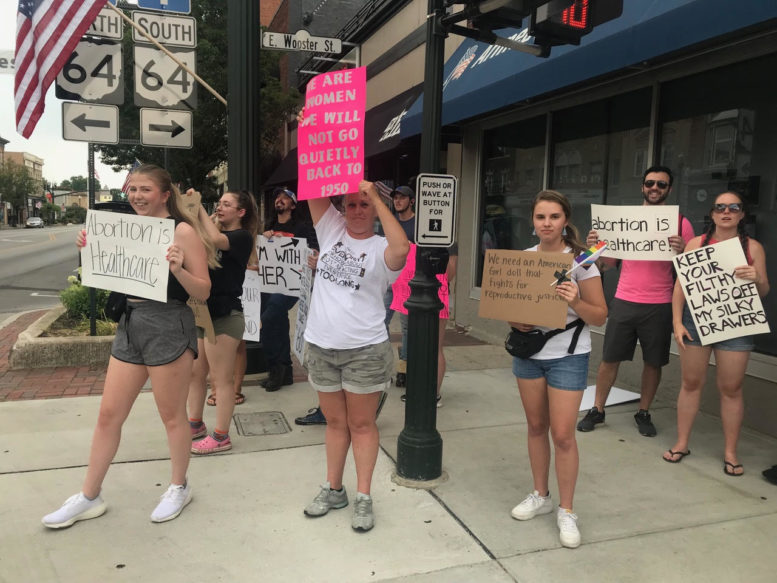BY SUSAN TEBBEN
A temporary restraining order is now in place for Ohio’s law that bans abortion past six-weeks gestation, a Hamilton County judge ruled on Wednesday.
Judge Christian Jenkins paused the law for two weeks while the case continues to be litigated in the county’s common pleas court. For now, Ohioans are permitted to get abortions up to 22 weeks gestation.
The judge had been awaiting a decision by the Ohio Supreme Court, who was asked by abortion clinics and the ACLU to dismiss the case they filed with the state’s highest court, after two months of inaction from the justices. The state’s highest court granted the dismissal.
Hoping for a faster resolution to the case, the clinics filed a separate lawsuit in Hamilton County, for which a hearing was held last week. At the hearing, clinics asked for a temporary pause on enforcement of Senate Bill 23, the law that was implemented by the state after the U.S. Supreme Court overturned Roe v. Wade this summer.
The law bans abortion procedures after about six weeks, a time when many medical professionals say pregnant people may not yet know they’re pregnant.
The state argued Hamilton County Common Pleas Court did not hold jurisdiction on the matter at the time of the hearing, since the Ohio Supreme Court hadn’t officially dismissed the case. Jenkins felt it prudent to hold off on a decision on the temporary restraining order until after the supreme court made their ruling, though in the Wednesday ruling, the judge said the Hamilton County court “would have jurisdiction…even if the Ohio Supreme Court had not dismissed” the case.
Now that the common pleas court has jurisdiction over the case, Jenkins gave clinics a two-week respite from the regulations held in the abortion law.
“No great stretch is required to find that Ohio law recognizes a fundamental right to privacy, procreation, bodily integrity and freedom of choice in health care decision making,” Jenkins wrote.
Having received multiple affidavits from patients contending that a lack of abortion services impacted their ability to receive unrelated treatments, such as chemotherapy, Jenkins said the affidavits show patients denied abortion services under the law “are often under great distress from, for example, not being able to obtain treatment for life threatening cancers, or from fearing job loss and an inability to provide for their families because they must arrange travel out of state on short notice, often without the resources to do so.”
He called arguments by the state that individual women who feel the law violated their rights should have filed their own lawsuits “dubious at best.”
“It is not surprising that individuals dealing with such situations do not hire lawyers and file lawsuits, but rather focus their energies on their health, keeping their jobs, caring for their families and keeping up with their educational studies,” Jenkins wrote.
Jenkins said SB 23 “clearly discriminates against pregnant women and places an enormous burden on them to secure safe and effective health care…and is therefore unconstitutional.”
The decision comes as surrounding states implement or look to keep abortion bans in place. On Tuesday, West Virginia approved an abortion ban with very few exceptions. Indiana’s near-total abortion ban is tied up in court as challengers attempt to stop enforcement of the law. Kentucky’s Supreme Court kept in place a ban that is currently facing legal challenges.
The Ohio case will now continue toward a final resolution, and the ACLU said they plan to ask for further injunctions to block the law “for the duration of the case,” according to a statement.





